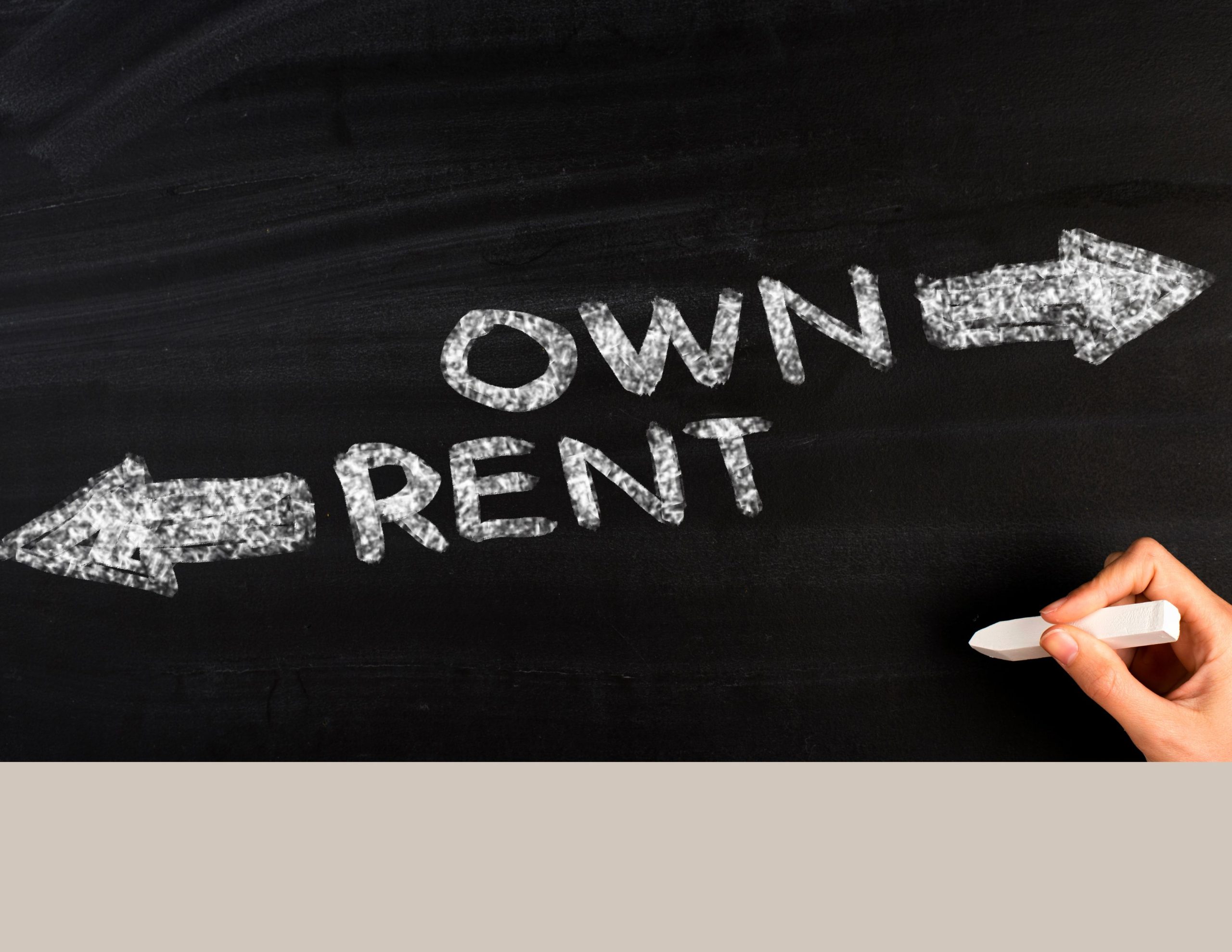Deciding whether to buy or rent a home is a significant financial decision that depends on several factors. Here are some key considerations to help you make the right choice:

1. Financial Situation
– Down Payment: Buying usually requires a substantial upfront payment (e.g., 20% of the home’s price). If you don’t have this amount saved, renting might be a better option.
– Monthly Costs: Compare the cost of renting vs. owning. Include mortgage payments, property taxes, insurance, and maintenance costs for ownership.
– Credit Score: A good credit score can help you secure a favorable mortgage rate. If your score is low, renting might be a better short-term option while you improve your credit.
2. Market Conditions
– Housing Market: In a buyer’s market, where prices are low, purchasing may offer more value. In a seller’s market, where prices are high, renting might be a safer option.
– Interest Rates: Low interest rates can make buying more attractive, as they reduce your monthly mortgage payments.
3. Long-Term Plans
– Stability: If you plan to stay in the area for a long time (typically 5+ years), buying might make more sense due to potential appreciation in home value and the ability to build equity.
– Flexibility: Renting offers more flexibility if you expect to move within a few years or if your job situation is uncertain.
4. Lifestyle and Preferences
– Maintenance: Owning a home comes with responsibilities like maintenance and repairs. If you prefer not to deal with these tasks, renting might be preferable.
– Customization: If having the freedom to renovate and personalize your living space is important, buying might be the better option.
5. Investment Perspective
– Building Equity: Homeownership allows you to build equity over time, which can be a financial asset. However, renting might free up cash for other investments with potentially higher returns.
– Opportunity Cost: Consider the opportunity cost of tying up a large amount of money in a down payment. Could this money be better invested elsewhere?
6. Tax Considerations
– Tax Deductions: Homeowners can often deduct mortgage interest and property taxes, which can make ownership more financially attractive.
– Capital Gains: If you sell your home at a profit, you may have to pay capital gains taxes, depending on how long you’ve owned the property.
7. Risk Tolerance
– Market Fluctuations: Home values can go up or down. If you’re uncomfortable with the risk of losing money on your home, renting may be safer.
– Job Security: If your income is unstable or you might need to relocate for work, renting provides more flexibility and less financial risk.
In summary, if you have stable finances, plan to stay in the area for several years, and are comfortable with the responsibilities of homeownership, buying might be the right choice. On the other hand, if you need flexibility, are uncertain about your long-term plans, or find renting more affordable in your area, renting could be the better option.


 Facebook
Facebook
 X
X
 Pinterest
Pinterest
 Copy Link
Copy Link
